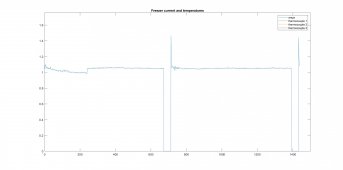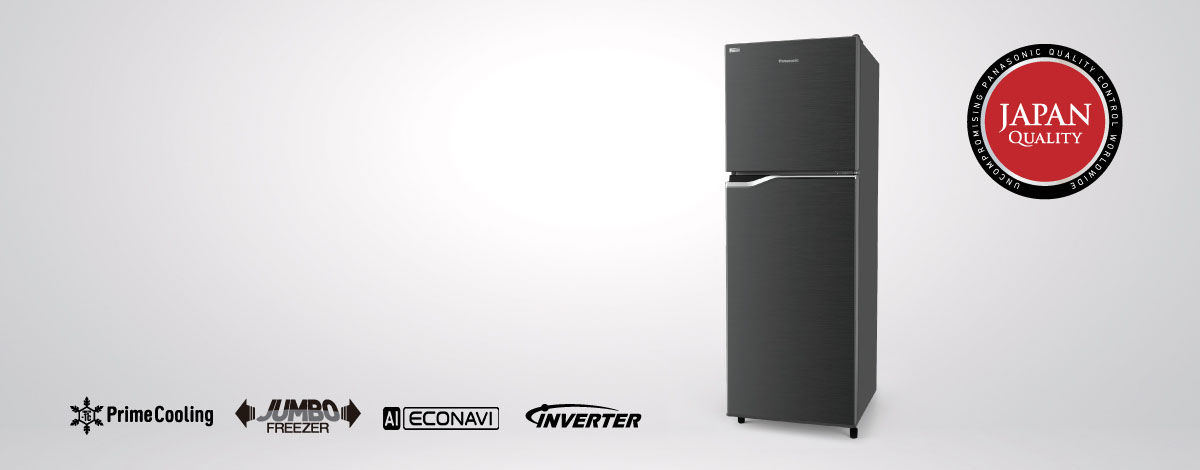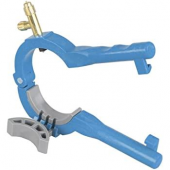While trying to debug inadequate cooling of fridge section of my top freezer, I hooked current transformer and DAS to power cord. (The setup was also supposed to read thermocouples for each fridge/freezer section and ambient, but having a problem that AC interferes with low signals so can't present that.)

Compared to Kill-a-Watt, which measures total consumption and some other parameters, this data acquisition presents the on/off cycle times.
Data was acquired over the course of 24 hours (X-axis is just sample number, not converted to units of time.)
Two defrost cycles per day, not one, is a bit inconvenient when trying to use it on battery backup. But maybe not much consumption, not much ice. Doesn't see to register in the graph.
I had already removed partition between fridge and freezer, and had thermostat at lowest setting. The data shows compressor ran continuously, never achieving setpoint. Once every 12 hours it turns off for a 30 minute defrost cycle. (As soon as defrost thermostat on cooling coils rises to 40F, heater turns off.)
Temperature achieved in fridge section, according to glass thermometer (and water) is just below freezing on moderate weather days. I've since raised thermostat somewhat so it regulates to 35 degrees, so if I capture data again I'll see some "off" times.
What this tells me is the refrigerator is on its last legs, has to run virtually constantly to maintain refrigerator temperature. If we were to monitor a new fridge, should see a significant "off" time. As compressor wears (or refrigerant is lost), the "on" percentage would increase. You don't notice because temperature regulation is maintained. Once "on" time is 100%, temperature will cycle up and down with ambient; you'll notice milk isn't cold enough and food begins to spoil faster.
A monitor of on/off times would serve as an indicator of compressor health, warning of impending failure before loss of temperature regulation.
At this time, I have just the plastic top surface of partition installed as a flimsy shelf, need to reinforce that. About 2" gap front and rear allows fairly free air exchange. Ice tray with chilled air blown over it freezes somewhat. My goal is to stretch use of this unit for possibly a couple/few more years, as all fridge. Separate freezer also in kitchen.
In other news, the Hotpoint size-by-side turned into all-freezer is keeping things rock solid even located outside during a heat wave. "Garage Ready", I would say.
People don’t realize how much insulation affects performance.
Unlike my Frigidaire deep freeze (coils in the sidewall), the Hotpoint side by side has fan over coils on the bottom. After I manage to move its 200 lb. bulk to new location, I'll consider an inch of foam board on all sides.










